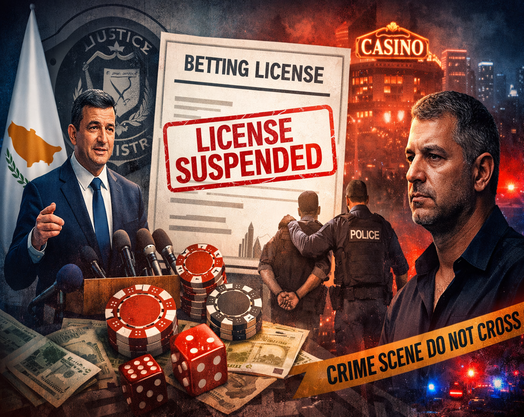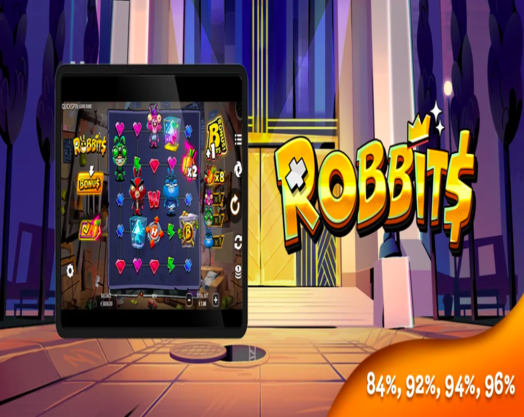Glossary Term
Insurance
Insurance
Used In: Blackjack
Introduction to Insurance
Insurance in blackjack is a term that refers to a specific side bet offered to players in certain situations during the game. It comes into play when the dealer's upcard is an Ace. This optional bet allows players to hedge their main wager against the possibility that the dealer has a blackjack. While it may appear to offer a form of protection against potential losses, understanding when to take insurance and its implications is crucial for informed decision-making in blackjack. In this guide, we'll delve into the details of blackjack insurance, exploring its mechanics, when it's offered, and its impact on gameplay.
Definition of Insurance in Blackjack
Insurance in blackjack is a side bet offered to players when the dealer's upcard is an Ace. Players have the option to place an additional wager, usually half of their original bet, on the belief that the dealer's hole card is worth 10 points, thus resulting in a blackjack. If the dealer indeed has a blackjack, the insurance bet pays out at 2:1, effectively covering the player's original bet. However, if the dealer does not have a blackjack, the insurance bet is forfeited, and the game continues as usual. It's important to note that insurance is entirely optional and not mandatory in blackjack gameplay.
When Insurance is Offered
Insurance becomes available to players in blackjack under specific circumstances, chiefly when the dealer's upcard is an Ace. This pivotal moment occurs after the initial deal but before players have made any subsequent decisions regarding their hands. The dealer typically announces the availability of insurance by inquiring if players wish to “take insurance” or “buy insurance.” This prompts players to consider the possibility of the dealer having a blackjack. At this juncture, players are presented with the option to place an additional wager, typically up to half of their original bet, on the designated insurance line marked on the blackjack table. Once all players have made their insurance decisions, the dealer proceeds to check their hole card to ascertain if a blackjack is indeed present.
How to Take Insurance
Taking insurance in a game of blackjack involves a straightforward process designed to provide players with an opportunity to hedge their bets against the dealer potentially having a blackjack. When the dealer's upcard is revealed to be an Ace and they offer insurance, players who opt to take insurance can signal their decision by placing an additional wager on the designated insurance line on the blackjack table. This additional bet is generally limited to half of the player's original wager. To indicate their choice, players simply place their additional chips on the insurance line, effectively conveying their decision to the dealer.
It's worth noting that players can only take insurance after the initial deal and before any further cards are drawn or decisions are made, ensuring clarity and fairness in the gameplay process.
Payout for Insurance
When a player opts to take insurance and the dealer subsequently reveals a blackjack, the payout is set at 2:1, meaning the player receives double their insurance wager. This payout mechanism serves as a form of compensation, effectively covering the player's original bet against the loss incurred from the dealer's blackjack. For instance, if a player places a $10 insurance bet and the dealer indeed possesses a blackjack, the player would receive a $20 payout. This payout consists of the player's original $10 bet being returned along with an additional $10 in winnings from the insurance bet. However, in scenarios where the dealer does not hold a blackjack, the insurance bet is forfeited, and the game progresses as usual, with the player's original bet remaining in play. Consequently, understanding the intricacies of the payout structure empowers players to make calculated decisions regarding the utilization of insurance bets in blackjack gameplay, balancing potential risks and rewards effectively.
Advantages and Disadvantages of Taking Insurance
In blackjack strategy, the decision to take insurance is a topic of debate among players and experts alike. On one hand, insurance can provide a sense of security, potentially mitigating losses in the event that the dealer reveals a blackjack. However, on the other hand, taking insurance can also impact the overall profitability of a player's blackjack strategy due to its unfavorable odds over the long term. Let's explore the pros and cons of taking insurance in the table below:
| Pros of Taking Insurance | Cons of Taking Insurance |
|---|---|
| Provides a safety net in case the dealer has a blackjack | Increases the overall house edge over time |
| Offers a potential payout of 2:1, doubling the insurance wager | Reduces the profitability of the player's strategy |
| Allows players to hedge their bets against potential losses | Can lead to unnecessary expenditure of funds |
| Offers peace of mind for risk-averse players | Does not guarantee a favorable outcome in the long run |
| Can be strategically utilized in specific situations | May encourage risk-averse play, limiting potential gains |
Considering both the advantages and disadvantages of taking insurance, players must weigh the potential benefits against the inherent risks before deciding whether to opt for insurance in a game of blackjack. Making a calculated decision based on the specific circumstances of the game and the player's risk tolerance is essential for maximizing the effectiveness of their blackjack strategy.
Statistical Odds and House Edge
When assessing the statistical odds and house edge associated with insurance in blackjack, it's imperative to delve into the probabilities and mathematical principles governing the game. The pivotal moment arrives when the dealer's upcard reveals an Ace, prompting players to contemplate the possibility of the dealer holding a blackjack. Statistically, the likelihood of this scenario materializing stands at approximately one-third. In other words, out of every three instances where the dealer presents an Ace, they are anticipated to possess a blackjack merely once.
Despite the potential allure of a 2:1 payout, the reality is that insurance bets carry unfavorable odds over the long term. The concept of house edge comes into play, delineating the casino's built-in advantage in any given game. In the case of insurance, the house edge typically ranges from approximately 5% to 7%, markedly higher than the standard house edge for the primary blackjack game. This disparity arises due to the disproportionate relationship between the payout for winning an insurance bet and the actual probability of the dealer having a blackjack.
To illustrate, let's consider a scenario where a player consistently takes insurance bets in blackjack. While there is a chance of winning the insurance bet and receiving a 2:1 payout, the overall frequency of the dealer having a blackjack does not align proportionally with this payout rate. As a result, despite occasional wins, the cumulative effect over an extended period tends to favor the casino, eroding the player's potential profitability. Furthermore, the house edge for insurance can vary slightly depending on factors such as the specific rules of the blackjack variant being played and the number of decks in use. Variations in these parameters can influence the precise calculation of the house edge, highlighting the nuanced dynamics at play in blackjack strategy.
While insurance may offer a fleeting sense of security against potential losses, it's essential for players to recognize its impact on the overall house edge and the long-term profitability of their blackjack strategy. Making informed decisions based on a thorough understanding of the statistical odds and house edge implications is paramount for maximizing success in the game of blackjack.
Insurance in Different Blackjack Variants
The concept of insurance remains a consistent feature across various blackjack game variants, although its implementation and specific rules may vary slightly. Below is a table outlining how insurance works in several popular blackjack variants:
| Blackjack Variant | Insurance Rules |
|---|---|
| Classic Blackjack | Insurance is offered when the dealer's upcard is an Ace. Players can take insurance as usual. |
| European Blackjack | Insurance is available in the same manner as Classic Blackjack, with players having the option to take insurance when the dealer shows an Ace. |
| Atlantic City Blackjack | Insurance follows the standard rules, with players offered the option to take insurance when the dealer's upcard is an Ace. |
| Spanish 21 | Insurance is typically available, although the specific rules may vary depending on the casino or software provider. |
| Vegas Strip Blackjack | Similar to other variants, insurance is offered when the dealer's upcard is an Ace, allowing players to hedge their bets accordingly. |
Common Misconceptions About Insurance
Despite being a well-known aspect of blackjack gameplay, insurance often gives rise to common misconceptions among players. Addressing and clarifying these misunderstandings is essential for ensuring informed decision-making at the blackjack table. One prevalent misconception is that taking insurance guarantees protection against losses. In reality, while insurance may provide temporary relief in the event of a dealer blackjack, its unfavorable odds over the long term mean that it does not serve as a foolproof safeguard against losses. Another misconception is that taking insurance is always a wise decision when the dealer's upcard is an Ace. While insurance may seem like a prudent choice in such scenarios, its impact on the overall house edge and profitability of the player's strategy must be carefully considered. Additionally, some players mistakenly believe that insurance is a mandatory aspect of blackjack gameplay. In truth, insurance is entirely optional, and players are not obligated to take it in any given hand. By addressing these common misconceptions, players can approach the decision to take insurance with a clearer understanding of its implications and make more informed choices during gameplay.
Conclusion
Insurance in blackjack presents players with a strategic decision that can significantly impact their gameplay experience. While the allure of protecting against potential losses may be tempting, it's essential for players to approach the decision to take insurance with a clear understanding of its implications. Through this guide, we've explored the mechanics of insurance, including when it's offered, how to take it, and its payout structure. We've also examined the advantages and disadvantages of taking insurance, as well as common misconceptions surrounding this aspect of blackjack gameplay. By equipping themselves with this knowledge, players can make more informed decisions at the blackjack table, ultimately enhancing their overall strategy and enjoyment of the game.
The Top Online Casinos for Blackjack Gambling
For avid blackjack enthusiasts seeking the top online casinos, a combination of factors sets certain platforms apart. These leading online casinos offer a diverse selection of blackjack variants, seamless gameplay experiences, generous bonuses tailored to blackjack players, and stringent security measures to ensure fair and safe gaming environments.
No results were found!


Author
Gabriela Kirilova | Content Optimization Director








